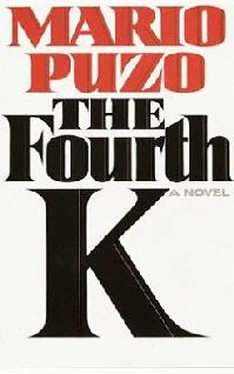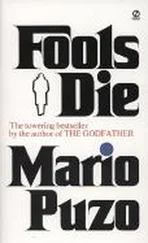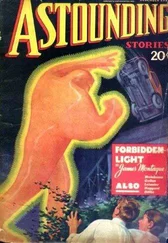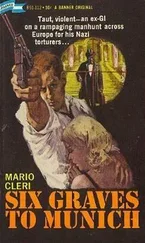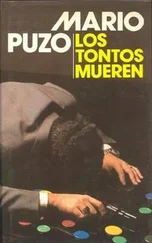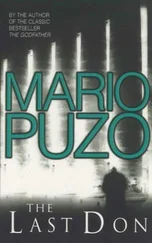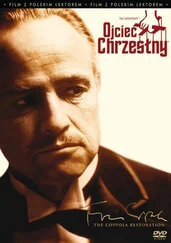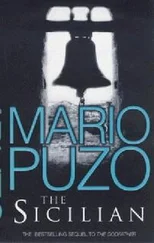The election of Francis Xavier Kennedy as President was a miracle of American politics. He had been elected on the magic of his name and his extraordinary physical and intellectual gifts, despite the fact that he had served only one term in the Senate before being elected to the presidency.
He was called the "nephew" of John F. Kennedy, the President who had been assassinated in 1963, but was outside the organized Kennedy clan still active in American politics. In reality, he was a cousin, and the only one of the far-flung family who had inherited the charisma of his two famous uncles John and Robert Kennedy.
Francis Kennedy had been a boy genius in the law, a professor at Harvard at the age of twenty-eight. Later he had organized his own law firm, which crusaded for broad liberal reforms in the government and the private business sector. His law firm did not make a great deal of money, which was not important to him, since he had inherited considerable wealth, but it did bring him a great deal of national fame. He crusaded for the rights of minorities and the welfare of the economically disabled, he defended the helpless.
Kennedy had swept the country along with him in his campaign for the presidency. He had proclaimed he would write a new social contract for the American people. What makes a civilization endure? He asked them. It is the contract between the governors and the governed. The government must promise public safety from crime, from economic hardship; it must promise to every citizen the right and the means to pursue the individual dream of enjoying personal happiness in this life. And then, only then, would the governed be obligated to obey the common laws that ensure civilization. And Kennedy proposed that as part of that sacred social contract all major questions in American society be settled by referendums rather than by decisions made by the Congress, by the Supreme Court or by the President.
He promised that he would wipe out crime. He promised that he would wipe out poverty, which was a root of crime and a crime in and of itself. He promised a national health insurance program financed by the state and a Social Security System that would truly enable workingmen to have a comfortable retirement.
To affirm his dedication to these ideals and to remove the armor of his own personal wealth, he proclaimed on television that he would give his personal fortune of forty million dollars to the Treasury of the United States. This was done in a highly public legal ceremony that was shown by every television-station news program in the country. The image of Francis
Kennedy's grand gesture had a huge impact on every voting citizen.
He flew to every major city in the country, and his automobile cavalcade covered the small towns. His wife and daughter by his side, their beauty flanking his, he overwhelmed the public consciousness. His three debates with the Republican presidential incumbent were triumphs. The combination of his wit, his intelligence and his youthful exuberance completely destroyed his opponent. No President had ever entered his first term of office more beloved by the populace.
He had conquered everything except fate. His wife had died of cancer before his inauguration.
Despite his crushing sorrow, Francis Xavier Kennedy managed to enact the first step of the program. During the election process he had made the daring political move of naming his personal staff in advance so that the electorate could approve them. He had named Oddblood Gray, a black activist, as his liaison with Congress on domestic affairs. He had selected a woman to be his running mate and made the political decision that she would also function as a member of his staff. The other nominations were more conventional. And it was this staff that helped push through his first victory, the revision of the Social Security laws so that every workingman could be sure of enough money to live on when he retired. The tax to finance this revision was paid by the profits of the giant corporations of America, and these immediately became his deadly enemies.
But after this initial victory, Kennedy seemed to lose momentum. His bill to give the people a referendum vote on major issues was defeated by Congress, as was his call for a national health insurance plan. And Kennedy himself was losing energy in confronting the stone wall Congress put up before him. Though Kennedy and his White House staff fought with an almost desperate ferocity, more and more of their plans were defeated.
The knowledge that in the last year of his presidency the battle was being lost filled him with a despairing anger. He knew that his cause was just, that he was on the side of what was right, that he held the moral high ground, that his course of action was the most intelligent for the survival of America. But it seemed to him now that intelligence and morality had no weight in the political process.
President Kennedy waited until everyone on his senior staff had been served tea.
"I may not run for a second term," he said evenly. Looking over to the Vice President, he added, "Helen, I want you to prepare to make your run for the presidency."
They were all struck dumb, but Helen Du Pray smiled at him. The fact that this smile was one of her great political weapons was not lost on these men. She said, "Francis, I think a decision not to run requires a full-length review by your staff without my presence. Before I leave, let me say this. At this particular point in time I know how discouraged you are. But I won't be able to do any better, assuming I could be elected. I think you should be more patient. Your second term could be more effective."
President Kennedy said impatiently, "Helen, you know as well as I do that a President of the United States has more clout in his first term than in his second."
"True in most cases," Helen Du Pray said. "But maybe we could get a different House of Representatives for your second term. And let me speak of my own self-interest. As Vice President for only one term I am in a weaker position than if I served for two terms. Also your support would be more valuable as a two-term President and not a President who's been chased out of office by his own Democratic Congress. "
As she picked up her memorandum file and prepared to leave, Francis Kennedy said, "You don't have to leave."
Du Pray gave everybody the same sweet smile. "I'm sure your staff can speak more freely if I'm not present," she said, and she left the Yellow Oval Room.
The four men around Kennedy were silent. They were his closest aides.
Kennedy had appointed them personally and they were responsible solely to him. The President was like a strange kind of Cyclops with one brain and four arms. The senior staff was his four arms. They were also his best friends, and, since the death of his wife, his only personal family.
Du Pray closed the door behind her, and there was a small flurry of movement as the men straightened their folders of memorandum sheets and reached for tea and sandwiches. The President's chief of staff, Eugene Dazzy, said casually, "Helen may be the smartest person in this administration."
Kennedy smiled at Dazzy, who was known to have a weakness for beautiful women, "And what do you think, Euge?" he said. "Do you think I should be more patient and run again?"
Eugene Dazzy had been the head of a huge computer firm ten years before, when Francis Kennedy first entered politics. He had been a cruncher, a man who could eat up rival companies, but he had come from a poor family, and he retained his belief in justice more out of a practical sense than a romantic idealism. He had come to believe that concentrated money held too much power in America and that in the long run this would destroy true democracy. And so when Francis Kennedy entered politics under the banner of a true social democracy, Dazzy organized the financial support that helped Kennedy ascend to the presidency.
Читать дальше
